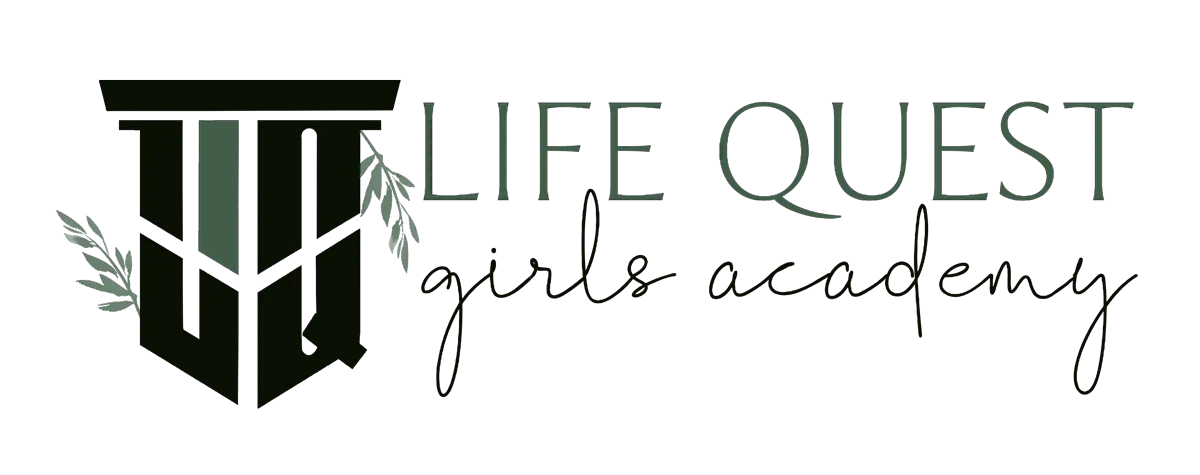Let's help you determine which type of school is best for your daughter.
Articles & Resources

Life After Residential Treatment: How Life Quest Girls Academy Helps Girls with Reactive Attachment Disorder Thrive
Transitioning out of residential treatment can feel like stepping into the unknown, especially for young women with Reactive Attachment Disorder (RAD). At Life Quest Girls Academy, we understand that true healing doesn’t stop once treatment ends—it continues as students learn to apply what they’ve gained to life beyond our doors. With RAD’s complexities, building trust and healthy connections takes time, support, and intentional guidance. In this blog, we’ll explore how Life Quest Girls Academy helps girls thrive after residential treatment, empowering them with the tools they need to succeed in the next phase of their journey.

Life After Residential Treatment: What RAD Girls Need to Thrive
For girls with RAD, completing a residential program is an incredible milestone—but it’s not the end of the journey. Life after treatment is often the most delicate phase, as young women begin reintegrating into family life, school environments, or new communities. To truly thrive, girls with RAD need:
Continued Structure and Routine: Predictable schedules promote emotional stability.
Ongoing Emotional Support: Trusted mentors and caregivers help build relational safety.
Opportunities for Healthy Socialization: Safe environments where they can practice forming positive connections.
Skills for Emotional Regulation: Learning to manage frustration, anxiety, and anger.
Family Integration Support: Guidance for families to navigate relationships and set boundaries effectively.
How Life Quest Girls Academy Prepares Students for Success After Treatment
At Life Quest Girls Academy, we take a holistic approach to healing, ensuring that every student has the tools to succeed when they transition out of our care. Here’s how we help girls with RAD thrive beyond residential treatment:
Personalized Transition Plans
Each girl is unique, which is why we create individualized transition plans tailored to her needs and goals. We work closely with students, families, and therapists to outline a plan that ensures continuity of care. These plans include goals for education, emotional development, and family reintegration.
Our team ensures a gradual shift from therapeutic settings to real-world environments, giving students the confidence to move forward without feeling overwhelmed.
Building Emotional Resilience through Therapeutic Models
We provide intensive emotional regulation training using therapeutic approaches such as Dialectical Behavioral Therapy (DBT), trauma-informed care, and mindfulness techniques. Emotional resilience is crucial for girls with RAD, especially as they transition into less structured environments.
By teaching practical coping skills, like mindful breathing and journaling, we empower students to manage stress, frustration, or anxiety as it arises in their day-to-day lives.
Social Skills Development & Community Engagement

At Life Quest Girls Academy, we know that relationships heal—but they also take practice. Our program emphasizes the importance of building healthy peer relationships through supervised social interactions, teamwork activities, and leadership opportunities.
We also encourage students to engage with their communities through service projects and volunteering, which provides meaningful ways to practice empathy, responsibility, and connection with others.
Family Support and Reintegration
A key part of thriving after residential treatment is family reintegration. We work closely with families to establish clear communication, set healthy boundaries, and rebuild trust. Through family therapy sessions and educational workshops, parents and caregivers learn how to support their daughters without triggering old patterns of behavior.
Parents also receive coaching on self-care and how to create an emotionally safe environment at home—both essential for the long-term success of RAD recovery.
Ongoing Mentorship and Aftercare Support
Healing takes time, and we are committed to lifelong support for our students. After graduation, students have access to ongoing mentorship and alumni resources that help them stay connected and motivated.
Whether it’s follow-up therapy sessions, career counseling, or just a friendly check-in from a trusted mentor, we remain part of each girl’s support network as she navigates life’s challenges.

A Life of Purpose, Connection, and Success
The journey doesn’t end when a girl leaves our academy—it’s only the beginning of a new chapter. Life Quest Girls Academy equips young women with the skills, confidence, and relationships they need to build meaningful lives. Girls with RAD face unique challenges, but with the right tools and continued support, they can grow into emotionally resilient, compassionate, and empowered individuals.
We take great pride in seeing our students thrive as they reenter the world—building trust with loved ones, pursuing academic and personal goals, and learning to cultivate joy and purpose in their lives.
Life after residential treatment is full of possibilities for young women with Reactive Attachment Disorder. At Life Quest Girls Academy, we are passionate about helping these girls move forward with hope, healing, and confidence. Through therapeutic support, social skill-building, and family reintegration, we give our students everything they need to thrive—not just in outpatient treatment, but in the rest of their lives.
If you or someone you love is struggling with Reactive Attachment Disorder, know that healing is possible, and brighter days are ahead. Contact us today to learn how Life Quest Girls Academy can help your daughter live her best life—now and in the future.
